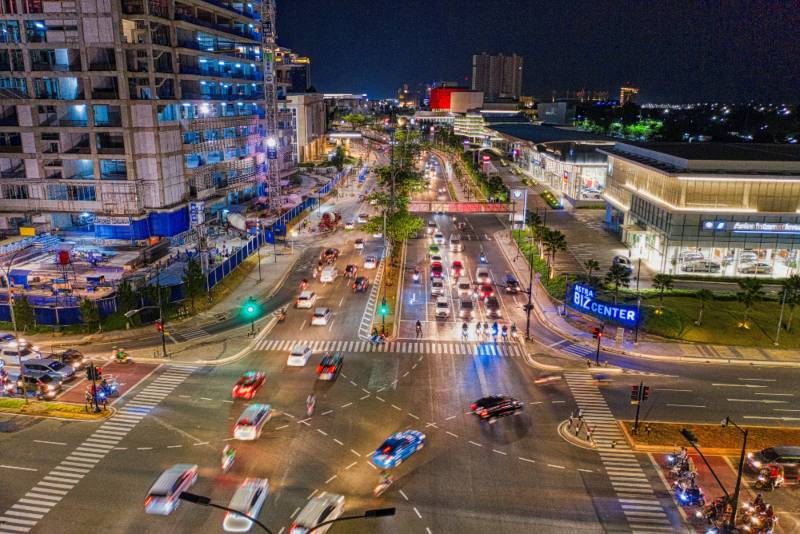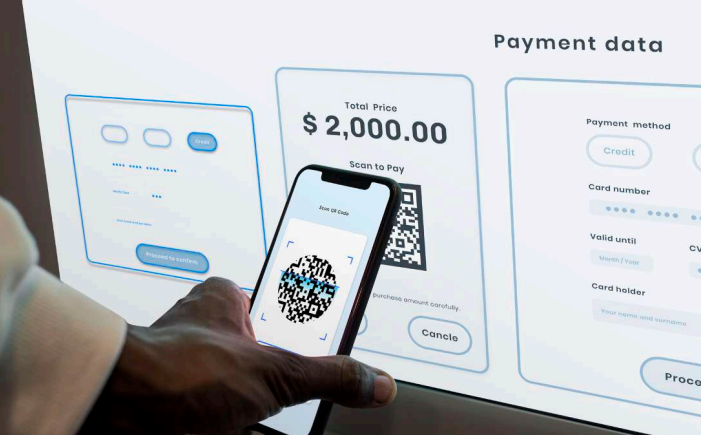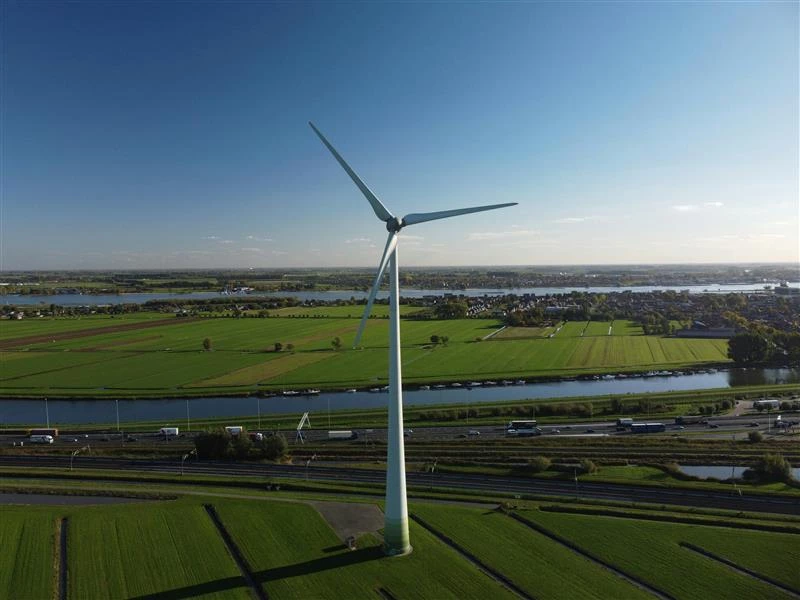To counteract the difficulties brought about by the global pandemic, organizations across the public and private sector have accelerated their digital transformation. By embarking on the journey to digitally transform, the application of technologies like IoT, artificial intelligence, and robotics have been widespread, often catalyzing positive and advantageous change.
Indonesia’s government has been closely studying the potential benefits that digital transformation provides. As such, Indonesia is exploring digitalization as a means to engage citizens in governance, economic recovery, and overall development.
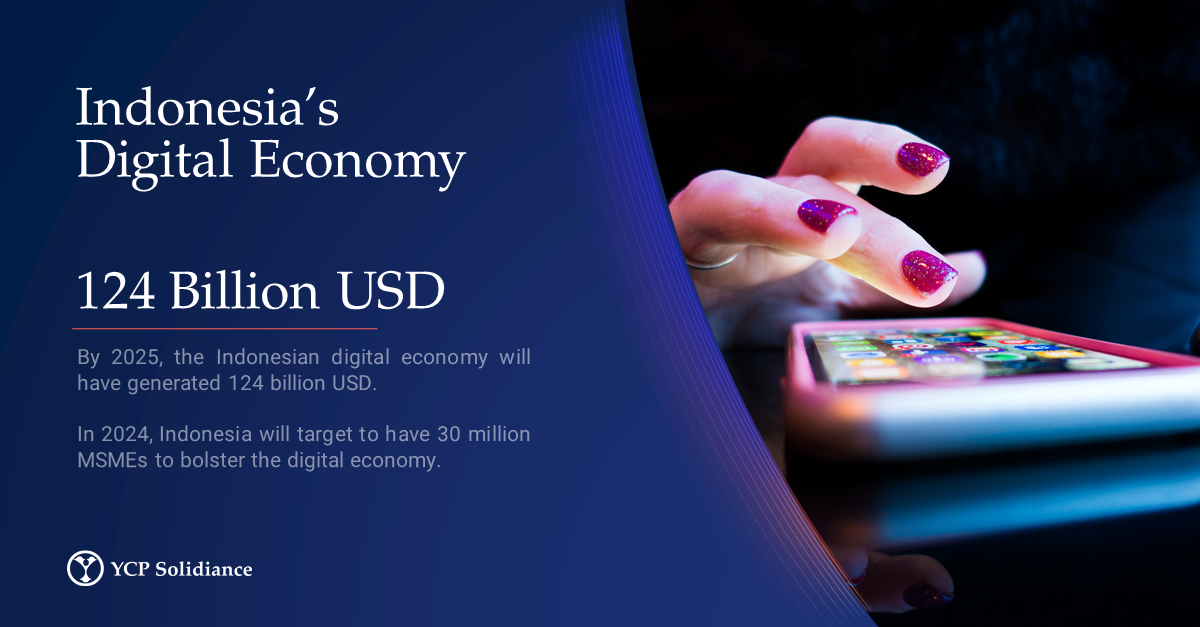
Applying Digitalization in Governance
When properly designed and planned, the application of a digital framework in the context of governance will minimize cost and effort, which improves operations overall. Aside from increasing the efficiency of government operations, digital transformation also presents several relevant advantages that citizens can enjoy.
For instance, the most basic benefit that digital transformation of a government can offer is inclusion in the digital realm, which allows for access to tools that improve quality of life. Examples include access to quality internet, or in the context of the COVID-19 pandemic, the ability to avail of government-sponsored medical teleconsultations. Given that digital inclusion is usually characterized by factors like affordability and accessibility, governments are generally well equipped for such issues.
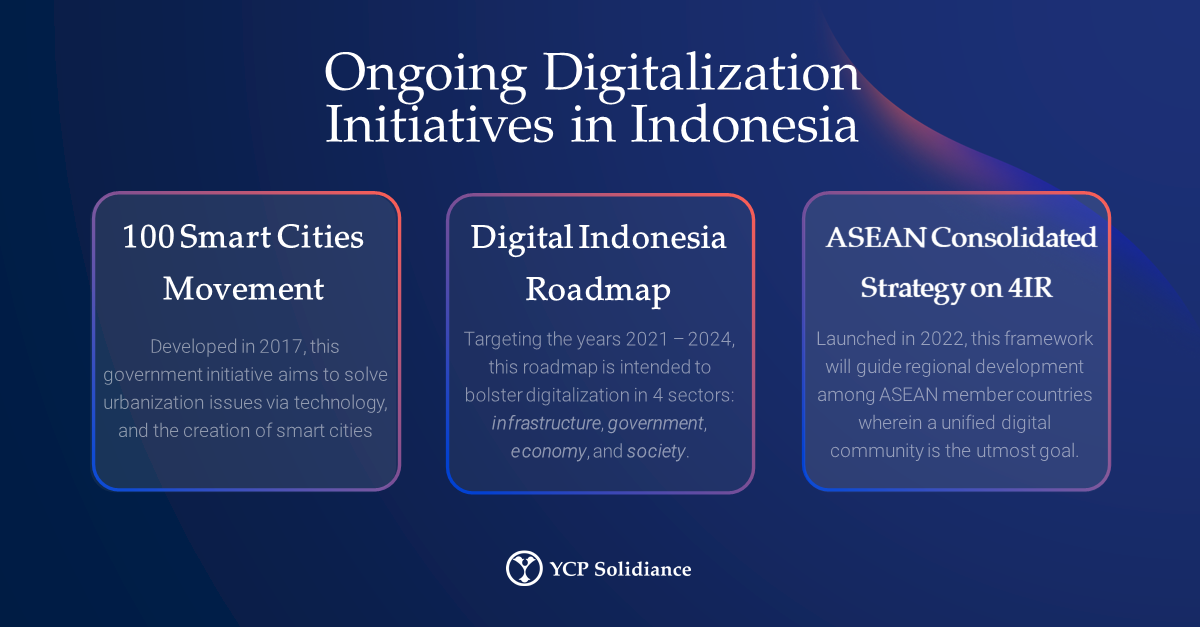
In the YCP Solidiance white paper “Can Indonesia Achieve ‘100 Smart Cities’ by 2045?,” Indonesia’s path to digital transformation is contextualized via the creation of smart cities within the country. Under the 100 Smart Cities Movement, the government is expected to be the initiator of digital transformation. Eventually, the digitalization of the Indonesian government will translate to smart governance, which will be guided by the following goals:
- Digitalization of public services, which can be made available to digital platforms and applications
- Creation of public infrastructure that has digital capability (i.e., a command center to monitor smart city operations)
- Catalyzing an influx of business transactions, most especially by partnering with tech companies and start-ups to improve the growing digital ecosystem
Although, it is important to consider that the digital transformation of the Indonesian government will not depend entirely on government officials. The digitalization of Indonesia and the creation of smart cities entail collaboration between the private and public sectors. For instance, the successful implementation of the smart city concept in Bandung was the result of joint cooperation between several parties, like academic institutions, conglomerates, government ministries, etc. Within such a dynamic, there now lies an opportunity for businesses to capitalize on, especially for those involved in tech and infrastructure.
For example, smart cities will need tech companies to help plan and monitor operations. In addition, smart cities also need adequate technological infrastructure, such as integrated sensors, digital public safety systems, data collection tech, etc. With the government looking to partner up with these kinds of enterprises, expect Indonesia to become a hotbed of digital activity in the coming years especially as the country races to meet its goals.
To get further insight on what benefits digital transformation offers, and to understand how Southeast Asia aims to foster region-wide development, subscribe to our newsletter here and check out these reports:
